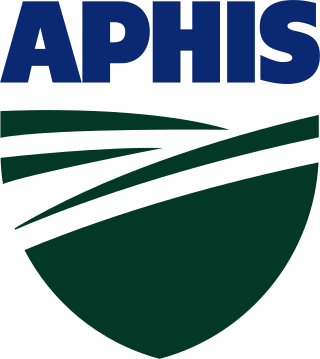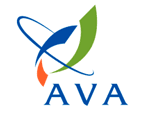
Seafood is any form of sea life regarded as food by humans, prominently including fish and shellfish. Shellfish include various species of molluscs, crustaceans, and echinoderms. Historically, marine mammals such as cetaceans as well as seals have been eaten as food, though that happens to a lesser extent in modern times. Edible sea plants such as some seaweeds and microalgae are widely eaten as sea vegetables around the world, especially in Asia.

The Department for Environment, Food and Rural Affairs (Defra) is a department of His Majesty's Government in the United Kingdom responsible for environmental protection, food production and standards, agriculture, fisheries and rural communities in the entire United Kingdom. Concordats set out agreed frameworks for co operation, between it and the Scottish Government, Welsh Government and Northern Ireland Executive, which have devolved responsibilities for these matters in their respective nations.

Fishery can mean either the enterprise of raising or harvesting fish and other aquatic life; or more commonly, the site where such enterprise takes place. Commercial fisheries include wild fisheries and fish farms, both in freshwater waterbodies and the oceans. About 500 million people worldwide are economically dependent on fisheries. 171 million tonnes of fish were produced in 2016, but overfishing is an increasing problem — causing declines in some populations.

Hazard analysis and critical control points, or HACCP, is a systematic preventive approach to food safety from biological, chemical, and physical hazards in production processes that can cause the finished product to be unsafe and designs measures to reduce these risks to a safe level. In this manner, HACCP attempts to avoid hazards rather than attempting to inspect finished products for the effects of those hazards. The HACCP system can be used at all stages of a food chain, from food production and preparation processes including packaging, distribution, etc. The Food and Drug Administration (FDA) and the United States Department of Agriculture (USDA) require mandatory HACCP programs for juice and meat as an effective approach to food safety and protecting public health. Meat HACCP systems are regulated by the USDA, while seafood and juice are regulated by the FDA. All other food companies in the United States that are required to register with the FDA under the Public Health Security and Bioterrorism Preparedness and Response Act of 2002, as well as firms outside the US that export food to the US, are transitioning to mandatory hazard analysis and risk-based preventive controls (HARPC) plans.

The Animal and Plant Health Inspection Service (APHIS) is an agency of the United States Department of Agriculture (USDA) based in Riverdale, Maryland responsible for protecting animal health, animal welfare, and plant health. APHIS is the lead agency for collaboration with other agencies to protect U.S. agriculture from invasive pests and diseases. APHIS's PPQ is the National Plant Protection Organization for the U.S., and the agency's head of veterinary services/veterinary Deputy Administrator is the Chief Veterinary Officer of the United States.
The Canadian Food Inspection Agency is a regulatory agency that is dedicated to the safeguarding of food, plants, and animals (FPA) in Canada, thus enhancing the health and well-being of Canada's people, environment and economy. The agency is responsible to the Minister of Health.

The National Marine Fisheries Service (NMFS), informally known as NOAA Fisheries, is a United States federal agency within the U.S. Department of Commerce's National Oceanic and Atmospheric Administration (NOAA) that is responsible for the stewardship of U.S. national marine resources. It conserves and manages fisheries to promote sustainability and prevent lost economic potential associated with overfishing, declining species, and degraded habitats.

Many species of fish are caught by humans and consumed as food in virtually all regions around the world. Fish has been an important dietary source of protein and other nutrients throughout human history.
In the experimental (non-clinical) research arena, good laboratory practice or GLP is a quality system of management controls for research laboratories and organizations to ensure the uniformity, consistency, reliability, reproducibility, quality, and integrity of products in development for human or animal health through non-clinical safety tests; from physio-chemical properties through acute to chronic toxicity tests.
A food safety agency or food administration or Food Safety Authority is a government agency responsible for ensuring the safety, quality, and proper labeling of food products within a country or region. These agencies play a crucial role in protecting public health by establishing and enforcing regulations and standards to ensure that food produced, imported, processed, distributed, and sold is safe for consumption.

The Royal Norwegian Ministry of Fisheries and Coastal Affairs was a Norwegian ministry responsible for fisheries industry, aquaculture industry, seafood safety, fish health and welfare, harbours, water transport infrastructure and emergency preparedness for pollution incidents.

The Agri-Food and Veterinary Authority of Singapore (AVA) was a statutory board under the Ministry of National Development that regulated food safety, safeguarded animal and plant health, and facilitated the agri-food and fisheries trade sectors. AVA was disbanded on 1 April 2019, with duties being transferred to other statutory boards, Singapore Food Agency, National Environment Agency, Health Sciences Authority, and National Parks Board.
The Marine Institute is a state agency in Ireland that provides government, public agencies and the maritime industry with scientific, advisory and economic development services, aiming to inform policy-making, regulation and the sustainable management and growth of the country's marine resources. Founded in 1991 on foot of a 1974 report, the institute undertakes and promotes marine research and development. The agency's staff and operations are governed by a ministerially-appointed board. Based at its headquarters near Galway, it has an office in Dublin and two research vessels.
The following outline is provided as an overview of and topical guide to fisheries:
The Bachelor of Fisheries Science (B.F.Sc) is a bachelor's degree for studies in fisheries science in India. "Fisheries science" is the academic discipline of managing and understanding fisheries. It is a multidisciplinary science, which draws on the disciplines of aquaculture including breeding, genetics, biotechnology, nutrition, farming, diagnosis of diseases in fishes, other aquatic resources, medical treatment of aquatic animals; fish processing including curing, canning, freezing, value addition, byproducts and waste utilization, quality assurance and certification, fisheries microbiology, fisheries biochemistry; fisheries resource management including biology, anatomy, taxonomy, physiology, population dynamics; fisheries environment including oceanography, limnology, ecology, biodiversity, aquatic pollution; fishing technology including gear and craft engineering, navigation and seamanship, marine engines; fisheries economics and management and fisheries extension. Fisheries science is generally a 4-year course typically taught in a university setting, and can be the focus of an undergraduate, postgraduate or Ph.D. program. Bachelor level fisheries courses (B.F.Sc) were started by the state agricultural universities to make available the much needed technically competent personnel for teaching, research and development and transfer of technology in the field of fisheries science.
Seafood species can be mislabelled in misleading ways. This article examines the history and types of mislabelling, and looks at the current state of the law in different locations.
Agriculture in Singapore is a small industry, composing about 0.5% of the total GDP, within the city-state of Singapore.

Fisheries law is an emerging and specialized area of law. Fisheries law is the study and analysis of different fisheries management approaches such as catch shares e.g. Individual Transferable Quotas; TURFs; and others. The study of fisheries law is important in order to craft policy guidelines that maximize sustainability and legal enforcement. This specific legal area is rarely taught at law schools around the world, which leaves a vacuum of advocacy and research. Fisheries law also takes into account international treaties and industry norms in order to analyze fisheries management regulations. In addition, fisheries law includes access to justice for small-scale fisheries and coastal and aboriginal communities and labor issues such as child labor laws, employment law, and family law.

The Ministry of Agriculture, Food and Rural Affairs is a cabinet-level division of the government of South Korea. It is headquartered in the Sejong Government Complex in Sejong City. It was established as Ministry of Agriculture, with the founding of the First Republic of Korea in 1948.

Depuration of seafood is the process by which marine or freshwater animals are placed into a clean water environment for a period of time to allow purging of biological contaminants and physical impurities. The most common subjects of depuration are bivalves such as oysters, clams, and mussels.












